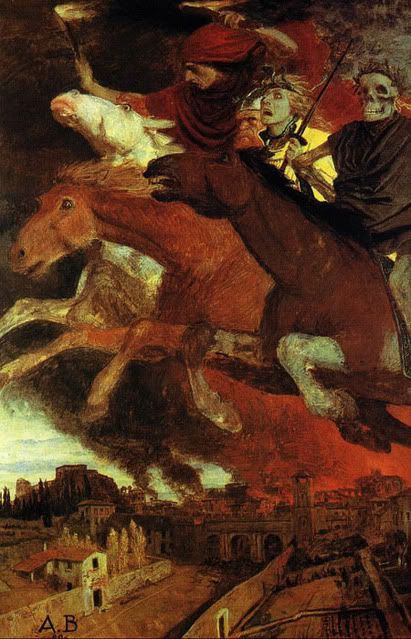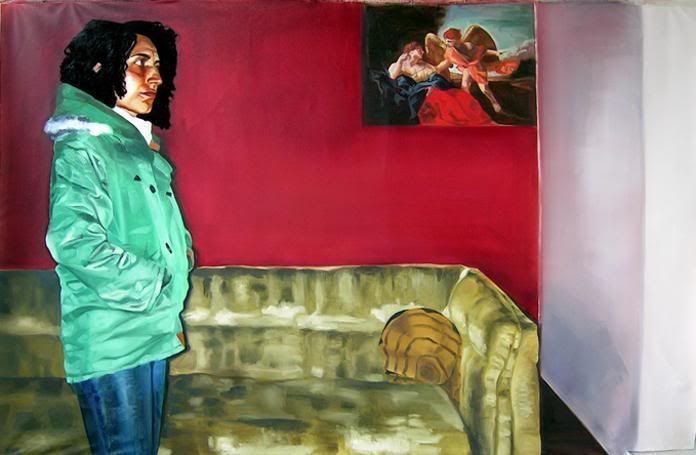The crisis began, perhaps, with Stalin. So many of the intellectuals of the Left found it necessary to take a side as Europe divided itself between east and west. Lukacs gambled on what he knew was an wretched regime if for no other reason than that it was the only regime with the possibility of resisting the hegemony of capitalism and its accompanying political liberalism. Horkheimer and Adorno set up shop to the west where they were free to critize both Stalin and liberalism, but for that reason lacked any sort of institutional support. The pogrom and the show trials only intesified the crisis for Left intellectuals and the optimism of Marxist political parties in western Europe dwindled. In the late 60s the giants of the Frankfurt School began to die off, Habermas defected over to the side of the liberals, while postmodernism, which turned out to be an apologetic movement for liberalism and capitalism, began to emerge as the direction of choice for "radical" thinkers. The fall of the Berlin Wall in 1989 was only the collapse of a rotting structure, the final gasp of a movement that had withered on the vine. We have reached a new situation in which, as Adorno had noted, the world has failed to achieve anything like a state of reconciliation, but also, contra Adorno, it seems the very rationality by which it might achieved has been lost, it seems obsolete.
This situation has created a vacuum which political liberalism would love to rush in and fill, but for which it will never be fully adequate even while it remains the one truly progressive force in existence at the moment. Humanity will never be content to ignore the question of the human good, which liberalism attempts to relegate to the private sphere under the guise of free speech, freedom of religion and the tradition of human and civil rights. With the collapse of the Soviet Union only the religions remained in a position to raise those questions to the political level, to the level where humanity finds itself bound together in a common project. Sadly, the horrible history of the 20th century has made progressives hesitant to propose such a universal project for humanity out of fear that this project will become corrupted and violent and deadly. Thus as human beings seek a sense of common direction, a sense of community that transcends the social and economic realm of private relations, the only place they had left to turn was to religious conservatives. The effects have been ugly and brutal: from the emergence of the Evangelical Right in the United States to Extremism in the name of Islam throughout the Muslim world to militant Hinduism in India.
Meanwhile liberalism itself seems to teeter on the brink of self-destruction. Having won the Cold War, survived the great Crisis of the Depression Era, and avoided the totalitarian pitfalls of fascism and Marxism, it stumbles about directionless: forgetful of its own dream of universal human dignity which is its great progressive legacy. European nations such as France and the Netherlands and even Britain, under the banner of liberalism, seem to be seeking a new form of fascism in the name of social "integration": how far, really, is Franofication and Dutch assimilationism from the legacy of Germanism and its rigid insistence on its own self-identification? In a different form, a similiar transformation seems to plague the States. The emphasis on freedom and "Democracy", on behalf of which the United States is willing to launch a violent Crusade for the salvation of humanity, has become mob rule. The rights tradition, the liberalism which once undergirded representative government, has become increasingly suspended, unimportant. The forgetfulness of the importance of that liberal tradition to a truly progressive government explains the seeming puzzlement of the Bush administration when democratic elections in the Middle East brought success for political parties of which the United States could never approve.
The cowardice of the Left, its inability to describe the historical moment in such a way that humanity could genuinely ask questions regarding the Future, is one of tradgedies of contemporary existence. While capitalism-liberalism lives in an eternal present without History, since its fundamental truths are timeless and ahistorical, buried and waiting to be discovered beneath the corruptions of tradition and (non-European) culture; and the religous zealots of the Right live in a dead past, clinging to an understanding of revelation that is over and done with and can only be repeated again and again; only those who are able to ask the question concerning the Future can genuinely offer humanity any hope. Only those who understand human existence as a communal pilgrimage for Truth which is not yet fully known can possibly move forward towards it, those who see History as the history of revelation and as a quest for salvation. Only if there is a Future can the New emerge.

